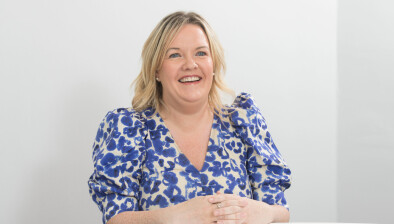Jenny Healy: Growing pressure on UK government to introduce new wealth tax

Jenny Healy
Jenny Healy, director of accounts and audit, based in the Saffery Champness Edinburgh office and a member of the firm’s Landed Estates and Rural Business Group, discusses the growing pressure on the UK Government to introduce a new wealth tax.
After a year of much needed support from the Chancellor to help keep businesses afloat and people in work during the COVID-19 pandemic it is inevitable that thoughts turn to recouping of some of those funds and proposals to Government as to how that might be achieved. It’s perhaps no surprise that much focus has been around taxing transfers or disposals of assets.
Inheritance Tax and Capital Gains Tax have received particular attention following pressure from various sources over the last year or two, as well as the reports into simplification of those taxes by the Government’s own Office of Tax Simplification (OTS). The latest proposal into the melting pot is a tax on assets themselves, a possible new wealth tax.
Last week, the Wealth Tax Commission (WTC) published its final report on the workability and acceptability of a new wealth tax, various options and its recommendations to UK Government.
Clearly, to be liable for such a tax, one must be asset rich, whilst also having the cash to be able to pay the tax. For many in the rural sector, that may pose a real problem, with many being asset rich but in terms of liquidity, relatively cash poor.
Firstly, it is important to note that the Wealth Tax Commission is independent of Government, and as such, there is no requirement for the Government to even consider its recommendations.
However, the Chancellor may well see potential in some of the proposals. The report also recommends reform of IHT and CGT alongside their proposed wealth tax. Following the work undertaken by the OTS around IHT and CGT, we may well hear more in the spring budget, and can certainly expect more about the Government’s clawback mechanism for the generous cash handouts this year.”
The WTC proposal is for a one-off wealth tax, with the view expressed that an annual wealth tax would likely be unfeasible. They estimate that a one-off tax could raise around £260bn. Net asset thresholds of both £500,000 and £2m per individual are mentioned in the Commission’s report.
The possibility of the one-off tax being paid at a rate of 1% per year over 5 years is proposed, which would alleviate some of the pressure on those that have the assets, but not necessarily the cash. Assets caught would include main homes and other properties, savings, investments, pensions and business assets.
The report proposes that spouses and civil partners could pool their assets, with a combined threshold to assess their tax liability, given that assets could be in joint ownership.
That could be advantageous where one partner has a bigger asset base than the other. It is also proposed that there should be no exemption or relief for business or agricultural assets, which would impact significantly on the rural sector. There is no recommendation in relation to heritage property.
The challenge will be how wealth to be taxed is determined and quantified. There is always a risk of unintended consequences. For instance, we have an increasingly ageing demographic in the UK and increasing amounts of wealth are held by the older generations.
Whilst holding a greater proportion of the wealth, with homes owned outright and having benefitted from increasing property values, those older generations may have comparatively less income to fund payment of the new tax and any wealth tax that disproportionately hits this group could back-fire.
Broadly speaking the proposal is that assets taxed will include main residences, pensions, investment properties, financial investments and business assets. Particularly for rural businesses and the landed estates sector, where asset bases tend to be very large, there may need to be a mechanism for longer-term tax deferral.
The COVID-19 bill needs to be paid, with taxation the obvious way to achieve this, and how that might work is up for debate. The Treasury Committee is reviewing tax after Coronavirus and the OTS recently reporting on both CGT and IHT. It seems likelier than ever that change is on the horizon, and perhaps in the 2021 Budget.
But if there is to be a wealth tax, and if it is to achieve its primary goal of helping balance the books, then it must be fair, proportionate and recognise the importance of wealth creation to economic growth.







